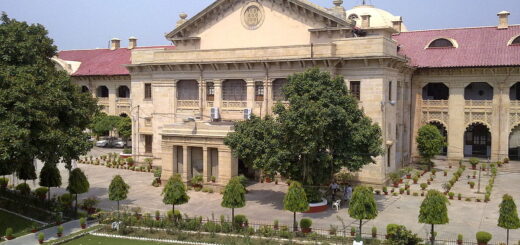Father-in-law’s responsibility for maintenance under HAMA is based on income from co-parcenary property, according to the Patna High Court.

The Patna High Court decided that a father-in-law is not required to pay maintenance to his widowed daughter-in-law under the Hindu Adoptions and Maintenance Act (HAMA) unless he has enough income from shared family property. This case began with a Criminal Revision petition where the complainant requested maintenance from her deceased husband’s family. A magistrate initially ordered that her husband, in-laws, and other relatives provide her with maintenance. However, the Sessions Court later changed this order, requiring her father-in-law and mother-in-law to pay her Rs. 5,000 each month. The father-in-law and other relatives appealed this decision in the High Court, arguing that the Sessions Court wrongly placed maintenance responsibilities on them. They claimed that the father-in-law’s obligation depended on his ownership of shared property and noted that, as a pensioner with limited income, he could not afford to pay the maintenance.
Justice Jitendra Kumar stated that Section 19 indicates that a father-in-law’s responsibility to support his daughter-in-law depends on income from any coparcenary property. The petitioners’ lawyer argued that there is no coparcenary property, only a single family home where the complainant can live. He also mentioned that the father-in-law is a pensioner with no extra income to support his daughter-in-law, and that the mother-in-law has no obligation to provide maintenance. Therefore, the court found the previous order to be legally unsound.
The High Court agreed with the petitioners, noting that the learned A.C.J.M issued a maintenance order without properly considering the law and facts, affecting all respondents, including the husband and both parents-in-law. The court ruled that such an order is not legally valid. It stated that only the husband should be responsible for maintenance, provided legal conditions are met. The court further explained that the father-in-law’s liability is not absolute and is subject to specific conditions under Section 19 of the Hindu Adoption and Maintenance Act, which the Sessions Court failed to address before issuing the order.
The High Court canceled the maintenance order and sent the case back to the ACJM to review the widow’s right to maintenance using the evidence provided. However, the Court maintained the protection and residence orders for the complainant, permitting her to stay in the family home.
Cause Title: Company Ram & Ors. v. The State of Bihar & Anr.
Appearance:
Petitioners: Advocates Shashi Saurabh, Puja Kumari
Respondents: Advocates Mohammed Arif, Rahul Kumar Mishra








